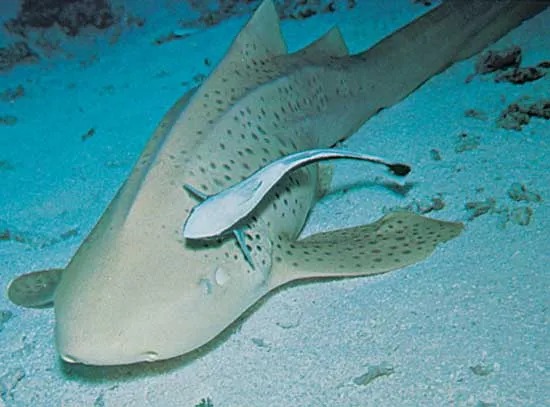Are Remora Fish Consumers or Decomposers? An In-Depth Exploration
Introduction to Remora Fish Consumers or Decomposers
The ocean is home to some of the most fascinating symbiotic relationships, and one such intriguing creature is the remora fish. Known as the “suckerfish,” remoras are often seen attached to larger marine animals like sharks, whales, and turtles. But a common question that arises is: Are remora fish consumers or decomposers?
In this article, we’ll explore the role of remoras in the oceanic food chain, their feeding habits, and their ecological impact. Let’s dive deep into understanding whether these unique fish are consumers, decomposers, or something else entirely.
What Are Remora Fish?
Understanding the Remora Fish
Remoras belong to the family Echeneidae and are characterized by a special suction disc on their heads. This adaptation allows them to attach themselves to larger marine animals and even boats. Their unique behavior makes them stand out in the aquatic world.
Physical Features of Remora Fish
- Length: Typically between 12 and 35 inches
- Weight: Can weigh up to 2 pounds
- Distinctive Feature: Suction disc on their heads
- Color: Varies from dark brown to grayish
Where Do Remora Fish Live?
Remoras inhabit tropical and subtropical ocean waters worldwide. They are commonly found in:
- Coral reefs
- Open oceans
- Coastal areas
- Around large marine animals
Are Remora Fish Consumers?
What Type of Consumers Are Remora Fish?
Yes, remora fish are consumers because they rely on external food sources for survival. But what kind of consumers are they?
Primary, Secondary, or Tertiary Consumers?
Remoras are classified as secondary consumers because they primarily feed on leftovers and small parasites from their host animals.
What Do Remoras Eat?
- Scraps of food from their host’s meals
- Dead skin and parasites from host animals
- Small fish and plankton
By feeding on parasites and leftovers, remoras play a crucial role in marine ecosystems, keeping their host animals cleaner and healthier.
Are Remora Fish Decomposers?
Understanding the Role of Decomposers
Decomposers break down dead organisms and recycle nutrients back into the environment. Examples include bacteria, fungi, and scavengers like some crustaceans.
Why Are Remoras Not Decomposers?
While remoras do consume dead skin and parasites, they do not break down organic matter into simpler compounds like true decomposers do. Instead, they act more like scavengers, cleaning their hosts but not decomposing material at a microscopic level.
The Symbiotic Relationship Between Remoras and Their Hosts
Mutualism or Commensalism?
The remora’s relationship with its host is a great example of commensalism—where one species benefits while the other remains unaffected.
Benefits to Remoras
- Free transportation across the ocean
- Protection from predators
- Easy access to food
Impact on Host Animals
Most host animals are unaffected by remoras. However, in some cases, excessive remoras might cause slight irritation.
The Ecological Importance of Remora Fish
How Do Remoras Contribute to the Ocean Ecosystem?
Remoras provide essential cleaning services in marine environments. By removing parasites and leftover food, they help:
- Maintain the health of host animals
- Prevent disease spread in marine life
- Reduce waste in oceanic ecosystems
Do Remoras Have Predators?
Yes! Despite their clever survival strategies, remoras can fall prey to larger fish, sharks, and seabirds.
Conclusion: Are Remoras Consumers or Decomposers?
To sum up, remora fish are consumers, not decomposers. They act as secondary consumers by feeding on scraps and parasites but do not break down organic matter like true decomposers. Their unique role in marine ecosystems makes them vital contributors to ocean health.
If you ever spot a remora attached to a shark, remember—it’s not harming the shark but rather helping maintain a cleaner, healthier marine environment!
Frequently Asked Questions About Remora Fish
Do Remoras Harm Their Host Animals?
No, remoras do not harm their hosts. Their presence is usually neutral, and in some cases, they help by removing parasites.
Can Remoras Survive Without a Host?
Yes, they can, but they rely on hosts for food and transportation. Without a host, they must hunt for small fish and plankton on their own.
Do Remoras Ever Attach to Humans?
Rarely, but it has happened! Remoras have been known to attach to divers out of curiosity, but they do not bite or cause harm.
Are Remoras Related to Sharks?
No, remoras are not sharks. They belong to a different fish family but are often found alongside sharks due to their unique suction disc.
How Long Do Remoras Live?
On average, remoras live for about 5 years in the wild, though this varies depending on environmental conditions.
Final Thoughts Remoras are truly one of nature’s most fascinating creatures. Whether hitching a ride on a shark or cleaning up the ocean, they play an essential role in marine ecosystems. So the next time you see one, appreciate the little fish with the big advantage!






